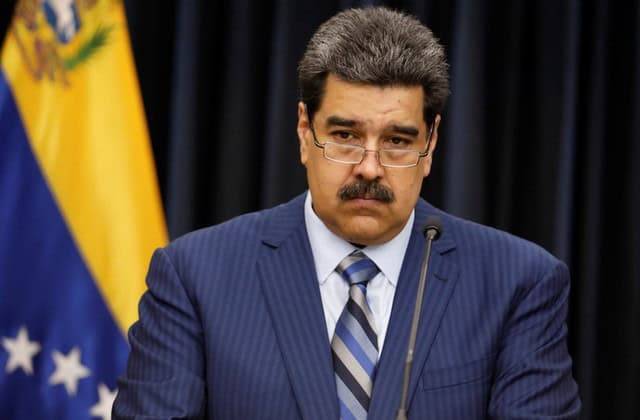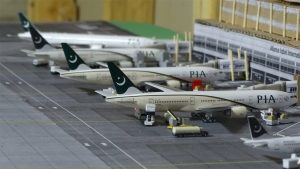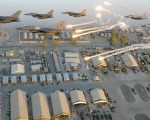Maduro has become the latest magnet for anti-America and antiwar sentiments. Both movements have long histories, and Washington’s tough stand against the controversial and embattled Venezuelan president gives leftist crusaders a new lease on life.
But while Washington has a major role in the Venezuelan crisis, blaming it all on the United States risks absolving Nicolas Maduro of his responsibility for the mess he created.
Venezuela is no basket case. This is an oil-rich, OPEC nation, much like Kuwait, Saudi Arabia, and the UAE. But unlike them, Venezuela lacks leadership and good policies. Maduro’s troubles today are man-made and borne out of bad governance and wrong economic policies more than foreign intervention.
Leftwing Maduro is the odd-man-out in a region that has turned right. He is disliked and shunned by his neighbors. Fourteen nations of the Americas called on him last month to step down. His brand of old-style leftwing populism has lost its charm. A month ago he addressed his nation on New Year’s Eve with these words: “Victory awaits us! The future awaits us! And everything will be better!”. A month later, the nation is on the brink of civil war.
The former bus driver and union leader is trying to cling to power through empty rhetoric. It’s a fall from grace for someone who has little to offer his people ever since he succeeded the charismatic Hugo Chavez in 2013. Recognizing Maduro’s loyalty, Chavez made him a deputy president and a foreign minister. But Maduro has always been better as a rabble-rouser than as an administrator. His tenure has been marred by a suffocating recession, high inflation, divisive politics, refugees, and political isolation in the region. If Venezuela is teetering on the verge of collapse today, President Maduro will share a large part of the blame.
If Venezuela is a mess, it is natural to expect neighbors and especially the US to intervene. That’s what big powers do. Russia intervened in Syria when Assad failed to hold his country together. For long, countries like Moscow, Cuba, Iran, and others have used Caracas to rub the US in the face. To expect Washington to stay back when it has a chance to exploit Maduro’s troubles is to be naïve.
Maduro is prolonging a political crisis he cannot resolve. A large segment of Venezuelans is opposed to him. While the opposition receives foreign support, it cannot be dismissed as foreign agents. The inability to diffuse internal conflict and unite his people is a key failure of the Maduro administration since 2013, and he had plenty of time to work on this. Even today, he shows no signs he intends to unite his country. If anything, if his people allow him to remain in power, he shows every intention of going the way of Saddam, Assad, Gaddafi, and Ali Abdullah Saleh in Yemen. These are examples of leaders who chose to destroy their nations over relinquishing power. A different example would be that of President Hosni Mubarak of Egypt, who stepped down to avoid a civil war and a potential foreign intervention.
If President Maduro weakens his country to the point where outsiders intervene, he would be responsible. The idea that he alone can protect Venezuela’s interests is an insult to his people, a large part of whom oppose him democratically.
None of this means that a possible American military intervention in Venezuela is a good idea. It is not. If anything, it would give Maduro a new legitimacy as a leader resisting foreign invasion. Such an intervention will also weaken the new emerging Venezuelan leadership in the form of opposition leader Juan Guido, and there is nothing an unstable country in transition needs more than a leader who can unite and who is not tainted by allegations of being a foreign puppet or agent. America is better off supporting the legitimate right of the Venezuelan people to change their government through legal means, including peaceful public dissent.
Like him or hate him, Hugo Chavez was a charismatic leader who united his nation. Maduro has lived off Chavez’ good name for too long. He failed in governing his country for five years. Should the world ignore while Maduro pushes his people to the brink of civil war? The irony is that foreign intervention can also lead to a different type of collapse and possible civil conflict.
The world is facing a choice between watching Venezuela descend into civil war and doing nothing about it or intervene leading to further instability.
But one thing is clear: it is Maduro’s decisions, more than a foreign intervention, which will dictate which way Venezuela goes.














